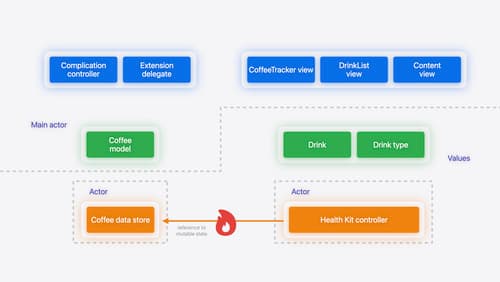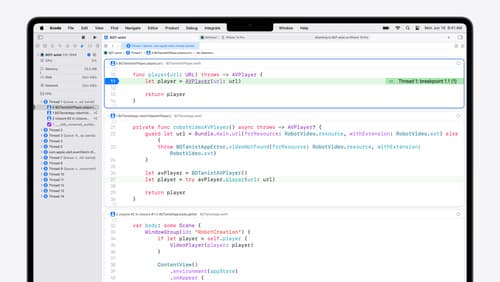What is "#isolation"?
Asked on 2024-08-07
1 search
In the context of Swift concurrency, #isolation refers to the concept of ensuring that certain pieces of code are executed in a specific context or actor, such as the main actor. This is crucial for maintaining data-race safety and ensuring that mutable state is not accessed concurrently in an unsafe manner.
For example, in the session Migrate your app to Swift 6, it is explained that if a callback does not specify how it is called back, it is considered non-isolated and cannot access data that requires a certain isolation. Conversely, if a callback provides an isolation guarantee, such as always being called back on the main actor, it can be annotated accordingly, and the receiver of the callback can rely on that guarantee.
Additionally, the session discusses various ways to handle isolation, such as using the nonisolated keyword for methods that do not need to be isolated to a specific actor, or using assume isolated to inform the compiler that certain code is already running on a specific actor, like the main actor.
For more detailed information, you can refer to the chapter on Delegate callbacks and concurrency in the session "Migrate your app to Swift 6".

Migrate your app to Swift 6
Experience Swift 6 migration in action as we update an existing sample app. Learn how to migrate incrementally, module by module, and how the compiler helps you identify code that’s at risk of data races. Discover different techniques for ensuring clear isolation boundaries and eliminating concurrent access to shared mutable state.

What’s new in Xcode 16
Discover the latest productivity and performance improvements in Xcode 16. Learn about enhancements to code completion, diagnostics, and Xcode Previews. Find out more about updates in builds and explore improvements in debugging and Instruments.
